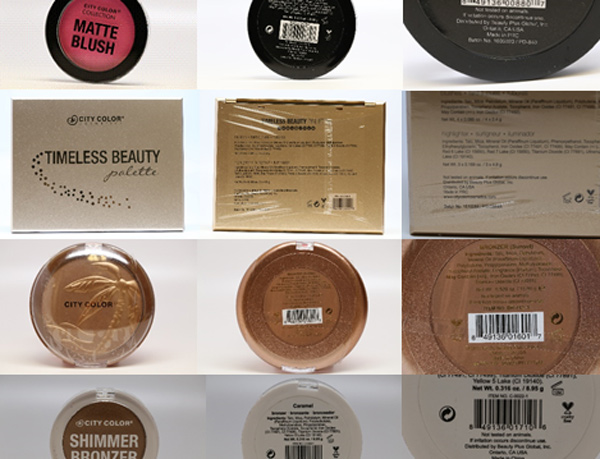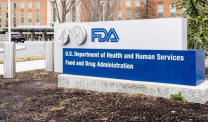Asbestos in Makeup Leads to Recall of City Color Products
Asbestos Exposure & BansWritten by Matt Mauney | Edited By Walter Pacheco

Beauty Plus Global Inc., the cosmetics and packaging manufacturer behind City Color and Max Mell, has issued a voluntary recall of four City Color makeup products that tested positive for asbestos contamination.
The U.S. Food and Drug Administration announced the recall Friday in the agency’s latest advisory regarding asbestos-contaminated cosmetics.
The four recalled City Color products include:
- Beauty Plus Global Inc. City Color Collection Matte Blush (Fuchsia) — SKU #849136008807, Lot No. 1605020/PD-840
- Beauty Plus Global Inc. City Color Cosmetics Timeless Beauty Palette — SKU #849136012958, Lot No. 1510068/PD-C864R
- Beauty Plus Global Inc. City Color Bronzer (Sunset) — SKU #849136016017, Lot No. 160634/PD-P712M
- Beauty Plus Global Inc. City Color Shimmer Bronzer (Caramel) — SKU #849136017106, Lot No. 1612112/PD-840
The products are available at major retailers, including Amazon.com, Walmart and eBay.
In June, Beauty Plus Global, which is headquartered in Ontario, California, undertook a voluntary recall of its Contour Effects Palette 2 after the product tested positive for asbestos.
Claire’s, a national children’s accessories retailer, also recalled its JoJo Siwa Makeup Set (SKU #888711136337, Batch/Lot No. S180109) after testing indicated the presence of asbestos fibers in the power eyeshadow element of the kit.
The FDA has advised consumers to stop using these cosmetic products. Asbestos contamination in makeup can lead to exposure to toxic asbestos fibers. Inhaling or ingesting these tiny fibers can lead to serious health conditions, including mesothelioma cancer, later in life.
Asbestos in Makeup a Growing Problem
To date, nine cosmetic products have been recalled this year for possible asbestos contamination. All products came from Claire’s or Beauty Plus Global.
The contamination stems from talc, a natural mineral used in many cosmetic products. Contamination can happen when talc is mined near natural deposits of asbestos.
Federal regulatory agencies, such as the FDA, have limited authority over cosmetics. The FDA can only suggest a recall of potentially dangerous cosmetic products. It is up to the manufacturers to adequately test the products and pull them from shelves if deemed unsafe.
Claire’s has been at the forefront of the asbestos in makeup controversy. The national retailer first recalled nine products in 2017 and filed for Chapter 11 bankruptcy in March 2018. The reorganization plan was approved, and Claire’s emerged from restructuring on Oct. 12, 2018.
Beauty Plus Global’s troubles are more recent. Friday’s announcement is the second asbestos-related recall for the company, but the manufacturer now has five total recalls in 2019 than Claire’s four recalls.
Why Does Asbestos Keep Showing up in Consumer Products?
While asbestos is highly regulated in the U.S., there is little oversight on the talc industry. The Personal Care Products Council asks its members and the cosmetic industry to use only asbestos-free talc, but no government regulations exist to enforce this.
The Federal Food, Drug, and Cosmetic Act, the law governing the FDA’s oversight of cosmetics products, hasn’t been updated since it was enacted in 1938.
Several companies, including pharmaceutical giant Johnson & Johnson, now face numerous lawsuits linking their baby powder products to mesothelioma and other asbestos-related diseases.
Imerys, a multinational company that mines and processes talc, filed for bankruptcy in February, seeking protection from lawsuits alleging asbestos in its talc caused cancer. The company plans to create an asbestos trust fund to handle current and future claims.
Earlier this year, the FDA announced it seeks to engage with stakeholders of the cosmetic industry to improve the framework of assuring the safety of cosmetic products.
“Moving forward, we’ll continue our work uncovering ingredients or products of concern and will take swift action to inform and advise consumers of any identified public health risks,” read a statement from former FDA Commissioner Scott Gottlieb and Susan Mayne, director of the Center for Food Safety and Applied Nutrition. “Ensuring the safety of cosmetics is a high priority for us.”






